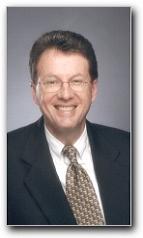By Carl Robinson, PhD, Advanced Leadership Consulting in conjunction with Susan Jameson Harker, Paladin Partners
I recently was asked to give a presentation to a group of CEOs about how to select top management talent. Given the expense associated with recruiting executives and the high cost of making poor choices, you would think executives would want to do this well. However, I am continually amazed at how frequently senior HR folks will tell me that they have a very difficult time getting their bosses to follow “best practices” in the selection of executives. That may explain in part why “33 – 50 % of executives selected for senior positions fail…”, according to the most current research. Usually the failure has little to do with the executive’s basic competencies but more to do with the wrong matching of executive to a job. “Wrong person – wrong job…usual cause for failure…” according to Randall P. White, adjunct professor at Fuqua School of Business, Duke University and a well respected consultant to Fortune 25 companies.
In my work as an executive coach, as a consulting psychologist hired by companies to conduct executive evaluations and as a former management recruiter, I have interviewed hundreds of executives. I am continually amazed at how often they will tell me that when they were interviewed by a CEO or a Venture capitalist, as a frequent example, that the interviewer spent most of the time talking and mostly trying to sell them on taking the job. That’s a recipe for disaster.
Following is a summary of the presentation I gave to that group of CEOs distilled to 11 steps. A special thank you to Susan Jameson Harker, now running technical recruiting at Amazon.com who, during her previous life as an external executive search partner with Paladin Partners (a leading firm that places executive talent in emerging growth companies), shared with me some of her tips.
1. Have a well-thought-out recruitment process in place – Be Systematic. Don ’t shoot from the hip. Prepare in advance and follow the steps below.
2. Identify the interview team and ensure everyone who will interview the candidate has been trained on interviewing techniques. Interviewing well is a learned skill.
3. Develop a role expectations description based on criteria that everyone agrees upon. It’s important to have all the interviewers on the same page about what is required. For example, if one person thinks a certain personality type is needed while another thinks differently they will be cross-wise when they compare their evaluations.
4. Ask behavioral, open-ended questions based on the position requirements to guard against “would do” vs. “have done.” It’s usually not very helpful to ask candidates “can you do x?” 9 times out of 10 they will say yes because they think they can. Remember, “the best predictor of future behavior is past behavior.” When you’re spending big bucks you want to hire people who have a track record doing what you need done. So ask something like, “Tell me how you handled dealing with x?” If you are looking for “creative,” “out-of-the-box” types, you will need to ask questions that explore how they were creative in the past. If they have been creative, they will likely continue to be…under the right circumstances. One caveat: you better provide a healthy work environment or even the most creative person will wither.
5. Decide who will ask the candidate what questions. It’s usually best to divide the questions based on interviewer competency. For example, let finance people ask the finance questions. .
6. Prepare interview questions in advance. Take notes so that you won’t forget what they said. I guarantee that you will either forget what the first interviewee said or mix his/her responses with subsequent interviewees if you don’t take notes. Ask each candidate the same questions so that you can compare answers and more accurately and yes…more scientifically, compare candidates.
7. First date: don’t go too far too fast. Don’t make a hiring decision based on your first interview. Take your time. Compare candidates.
8. Make the candidates feel comfortable – they reveal more if they aren’t on guard. Sure, if you make the interview feel like an interrogation you’ll know how they respond to questioning under pressure, but it’s unlikely they’ ll tell you much revealing about themselves because they will be on the defensive. So, if you want to hire tough but defensive people…interrogate away.
9. Always allow enough time in the interview for the candidate to ask questions — the number and caliber of their questions will tell you a lot about how they think.
10. Do extensive reference checking (minimum 6) using prepared behavioral questions to verify “have done vs. will do.” Make sure the candidate has actually done what they say they have. And, at the CEO level, be very careful not to fall for the “halo effect” (see below), a very common interview “selection bias error.”
Research has shown that interviewers commonly fall prey to one or more types of “selection bias errors.” So, don’t fool yourself…be systematic so that you are not fooled by your “gut feelings” or “chemistry,” which might actually be unconscious selection bias errors. Being systematic and following the above steps will also help you avoid these common interviewer errors:
Primacy effect – picking a person because they are the freshest in your memory
Order effect – more often than not, people think the first or last interviewee was the best even when the middle one was the true star.
Subjective weightings – check those biases at the door, e.g., male/female, color, height, school, country club, accent, how they are dressed, etc. You get the picture.
Self-image hiring – Just because they think like you doesn’t make the candidate a terrific choice.
Halo effect – Especially for CEO candidates, be careful about the impact reading about a candidate in the press or seeing them on TV may have on you.
Or…if a Venture Capitalist says…”he doesn’t have what takes to be a CEO” meaning he or she isn’t charismatic. Too often interviewers are biased toward “charismatic” personality types even though there is no scientific evidence to support that charismatic leaders are across the board more effective. Please refer to my website for the archived executive briefing titled “Charisma is no Panacea.”
11. Used scientifically validated pre-employment assessment tools. Assessment instruments have come a long ways in the last 20 years. Used appropriately and with the proper training, assessment instruments designed for selection can help you pick top talent well matched to your company. In addition, pre-employment tests, validated specifically for your organization can also be developed. These types of instruments can help you clearly target the critical characteristics and traits necessary for success in your organization, helping you hire candidates who will perform at a high level. One of the added benefits of using pre-employment tests is that they are not prone to “selection bias errors.” The assessment software programs don’t fall for the “halo effect” or “order effect,” for example.
Last tips…
* You must sell the candidate on the job and company but don’t talk more than 20% of the time. Let them tell their story.
* Don’t over inflate the company– truth in packaging! For example, if your company is struggling, don’t gloss it over. There really are people who would prefer to take on that type of challenge than to work for a mature predictable company. Match the person with the right job by telling the truth about the job/company.
* Don’t ask “yes” or “no” questions.
* Remember – Recruiting is a MARKETING EVENT for the company and for you! Treat all candidates respectfully because even if they aren’t hired they will remember how you treated them and they may just refer to you a top-flight candidate and save you big recruiting bucks! Furthermore, they might choose or not choose to become a customer some day depending on how you treated them. Lastly, your interviewee might be your interviewer some day! [24×7]

Carl Robinson, Ph.D., is a business psychologist with over 20 years experience helping people achieve the results they want. He is a specialist in leadership and executive development in both team and individual settings. He primarily works with senior executives and partners and high potential managers and professionals.
Dr. Robinson has a Bachelor’s degree in Human Relations and Organizational Behavior from the University of San Francisco and, a Masters in Counseling Psychology from Vermont College and a Ph.D. in Counseling Psychology from the California Institute of Integral Studies. His dissertation research investigated factors that influence creative thinking.
Carl is a member of:
The Society of Consulting Psychology
American Psychological Association
The Society for Human Resource Management (SHRM)
Seattle Rotary #4
















